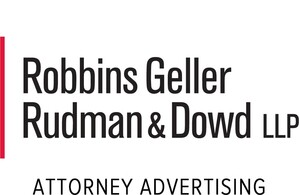SAN FRANCISCO, Oct. 4, 2016 /PRNewswire/ -- A California federal judge has ordered that merchants may move ahead with their antitrust, conspiracy, and related claims against MasterCard, Visa, American Express and Discover. On Friday September 30, 2016, United States District Court Judge William H. Alsup denied the credit card networks' motions to dismiss in B & R Supermarket, Inc., et al. v. Visa, Inc., et al., No. 3:16-cv-01150-WHA, a case pending in the Northern District of California. The order allows the suit to proceed and permits the plaintiffs to pursue discovery, including depositions of credit card network company officials. The lawsuit was filed in March by two Florida retailers, suing on behalf of U.S. merchants, against the four largest credit card networks and some of the country's biggest banks for conspiring to shift the liability for billions of dollars in fraudulent credit card charges away from those financial giants and onto the merchants.
The lawsuit centers on the changeover from magnetic-stripe payment cards, to newer cards containing a computer chip, known as EMV cards. (EMV stands for Europay, MasterCard and Visa, the companies that created the chip cards nearly 20 years ago.) When the changeover happened, plaintiffs contend that defendants conspired to make merchants shoulder the costs of certain chargebacks that had for years been the responsibility of the financial behemoths. Chip cards have been adopted in much of the world, but the liability shift implemented in the United States differed from its adoption elsewhere where it was typically staggered and made with various accommodations to merchants such as reduced interchange fees and additional time to adopt the EMV technology. Specifically, the liability shift occurred and merchants became liable for certain fraudulent charges; however, merchants continued to pay for fraud protection through interchange fees but no longer received that protection. Moreover, the chip cards used in other parts of the world are the more secure "chip and PIN" technology as opposed to the less secure "chip and signature" cards adopted in the United States.
"The amended complaint sufficiently alleges a context that raises a plausible and reasonable suggestion of collusion," Judge Alsup wrote in a 22-page opinion. "Plaintiffs have sufficiently pled the basic evidentiary facts as to involvement in Visa, MasterCard, and American Express in the alleged conspiracy." The Order also concludes that the suit properly alleges Discover's involvement in the scheme. Although the banks were dismissed from the lawsuit for now, Judge Alsup ordered them to preserve and produce documents and left open the possibility of bringing them back into the case if newly discovered evidence showed the banks' complicity.
"We are, of course, pleased and gratified at this result," said Patrick J. Coughlin of Robbins Geller Rudman & Dowd LLP, lead counsel for the plaintiffs. "Judge Alsup's order means that we can now move into the phase of this case where the evidence of the card networks' wrongdoing can be revealed. In the end, our hope is to secure some relief for the millions of merchants – many of them small businesses – who have suffered and continue to suffer enormous losses from this conspiracy."
Logo - http://photos.prnewswire.com/prnh/20150415/198876LOGO
SOURCE Robbins Geller Rudman & Dowd LLP
Related Links
http://www.rgrdlaw.com/?utm_source=PRNewswire&utm_medium=Press%20Release&utm_campaign=Site%20Preview
WANT YOUR COMPANY'S NEWS FEATURED ON PRNEWSWIRE.COM?
Newsrooms &
Influencers
Digital Media
Outlets
Journalists
Opted In


Share this article